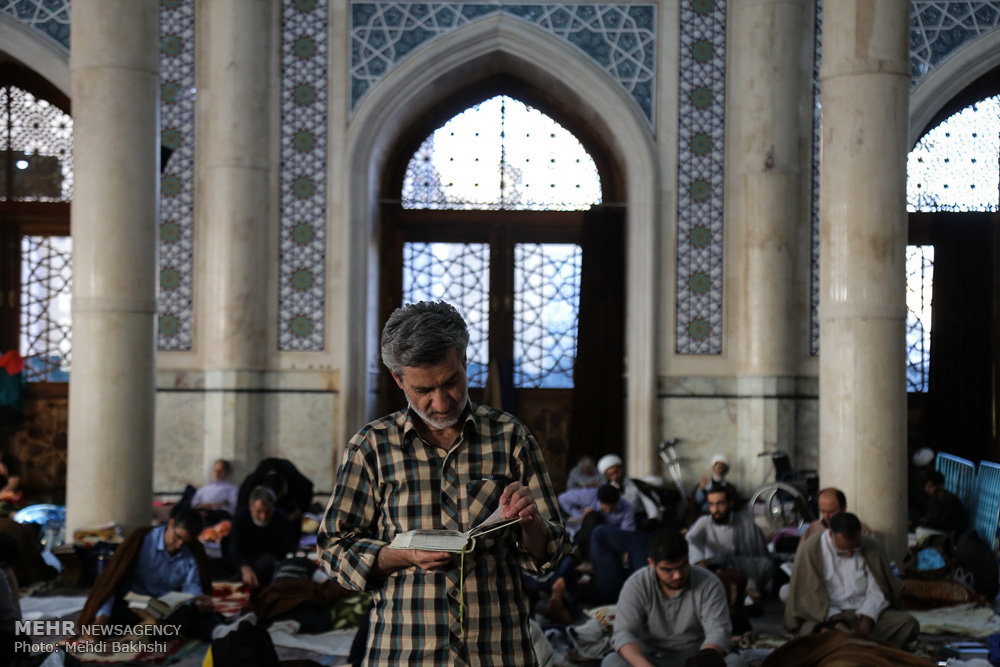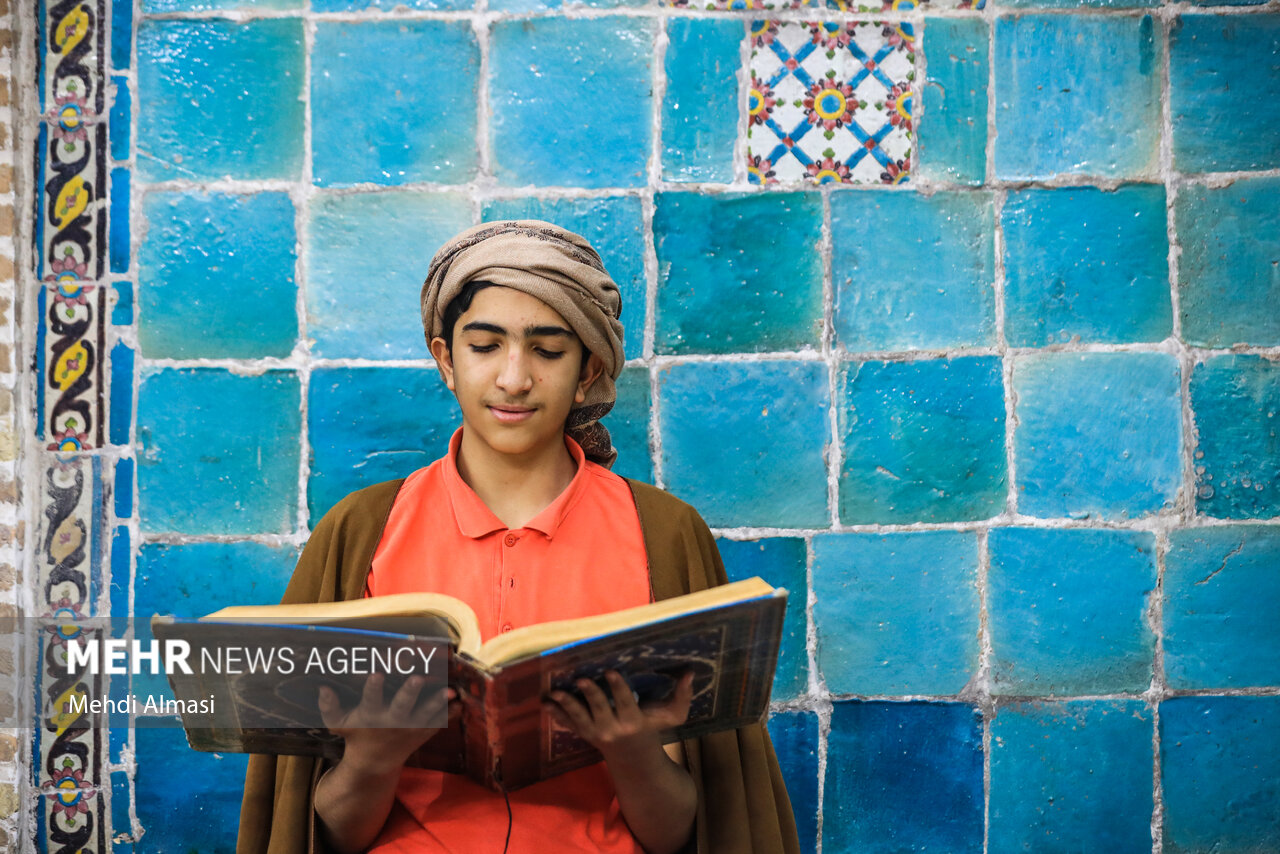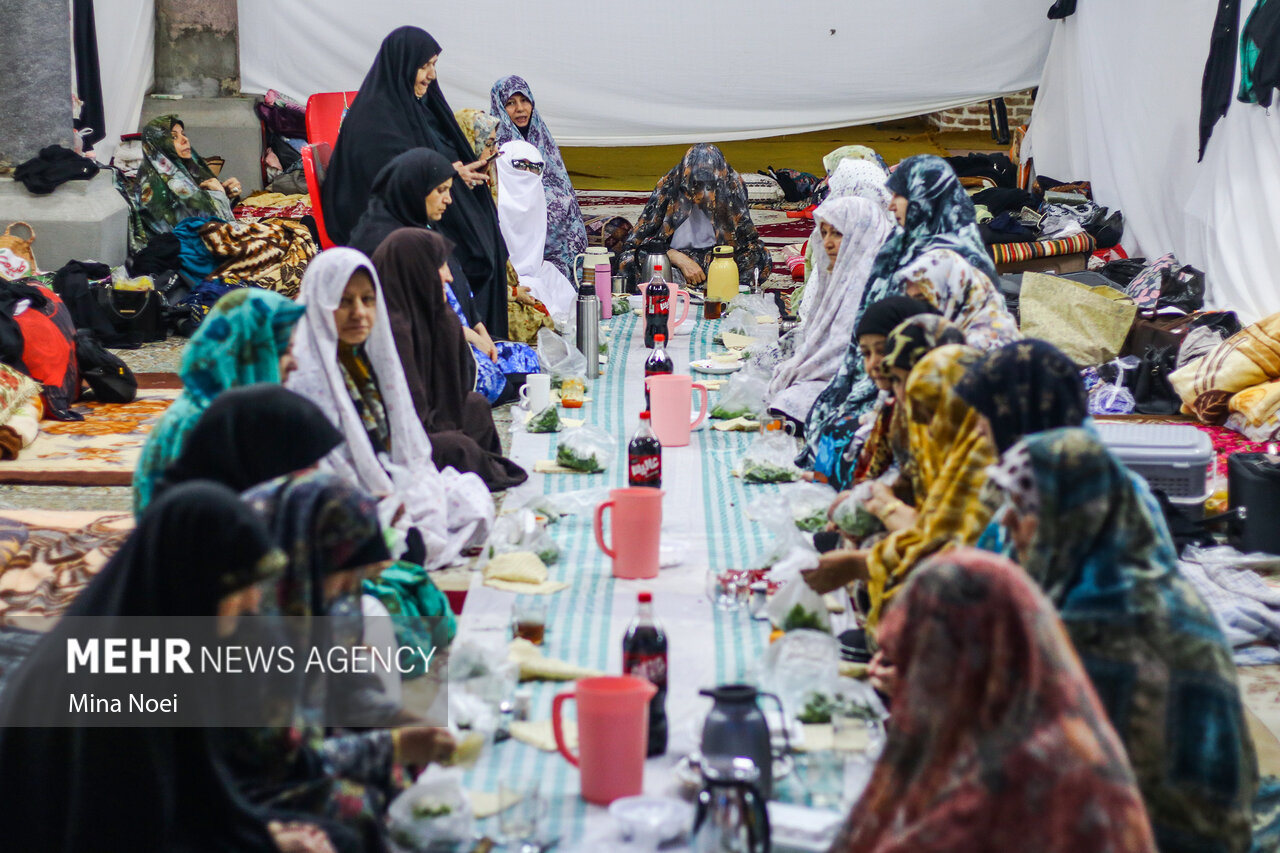From mothers and children's retreats to Bitoteh, hundreds of thousands of young people in this year's retreats; The growth of retreats every year is more than the last

Mehr News Agency – Religion and Thought Group – Seyedah Fatemeh Sadat Kiaei: Rajab, the month of worship and service to God and the most virtuous the most There are days of the year when believers prepare themselves for the month of Sha'ban and then Ramadan by doing special acts and worships of this month. I'tikaf is one of the special practices of the month of Rajab, which means staying in the mosque for three days or more with the intention of closeness. Itikaf from the word Akaf It is taken to mean turning to something and honoring it, and it means to settle down. This practice during Albayd That is, the three middle days of the month, including the month of Rajab, along with acts such as fasting and night prayers, are highly recommended Therefore Hadiths lead to forgiveness of sins and deliverance from hell fire. Itikaf, as one of the traditions of the Prophet, has been established for a long time in Islamic countries and in large and important mosques such as Masjid al-Haram, Masjid al-Nabi, Masjid Kufa and other famous mosques in the Islamic world.
In some hadiths, itikaf is specific to the mosque HaramMasjid al-Nabi, Masjid Kufa and Jama Masjid in Basra, but there are narrations in which I'tikaf in Jama Masjid or a mosque where a just imam has performed Friday or congregational prayers is considered valid, and the condition of fasting is one of its conditions. is

Historical record of itikaf in Iran
In Islamic Iran, itikaf in three days of the month of Rajab is more popular than itikaf in the last decade of Ramadan, and especially in the years after the Islamic revolution in mosques all over the country with special programs. E It is held and one of the main audiences are teenagers and young people, whose presence in the Itikaf ceremony has been accompanied by a good growth in recent years.
According to Sheikh Lotfollah missy (M 1035 Q), during the Safavid period, itikaf was held in Qazvin and Isfahan. It is stated in some reports that in Iran during the Pahlavi period, itikaf was performed very rarely, and only in some religious cities.
During the first Pahlavi period after the arrival of Ayatollah Sheikh Abd Al Kareem Yazdi's visit to the holy city of Qom and the establishment of the Qom seminary near the sacred shrine of Hazrat Masoumeh (peace be upon him), the divine tradition of retreat, took on a different flavor. In the last century, Mirza Mehdi Boroujerdi was the founder of this good tradition in the city of Qom. gone gone This is the Muhammadan tradition صلى الله عليه وسلم God against him God and Salem It spread to other cities in Iran. He was one of the assistants, workers and advisors of Ayatollah Sheikh Abdul Karim Haeri Yazdi. Due to the creation of a suffocating atmosphere, Rezakhani used to retreat alone in the mosque of Imam Hassan Askari (peace be upon him) and no one was with him. Later, another scholar joined him, and after a while, others were also drawn to this tradition. So much so that Ayatollah Boroujerdi closed the seminary classes for the participation of students in the Itikaf ceremony.
The recommendations of the leader of the revolution to Recluses
After the victory of the Islamic revolution, the establishment of divine rituals and traditions Mohammadi was followed with more enthusiasm and excitement, as according to statistics from the officials of the I'tikaf last year, one million people, most of whom were young people, participated in the I'tikaf.
In his Friday prayer sermons in 2004, the Leader of the Revolution said: This general phenomenon; Tens of thousands of people participating in the Itikaf ceremony, mostly young people, is one of the developments of the revolution. I once said that our revolution has its fall, but it also has its rise; Growths prevail over losses. So good luck to you Recluses dear

In his speeches, the leader of the revolution also gave advice to Recluses for interest Mandy He has as many virtues as possible are One of them is the recommendation to read the Sahifa of Sajjadiyya, “This retreat that young people they do, in fact they are alone with God. Itikaf is more of an individual work; Creating a relationship with God. Juri Don't let the collective programs of these retreat centers weaken or take away the solitude and personal and heart connection with God in weak people. to allow; take time; let this young people They should read Quran, read Nahj al-Balagha, read Sahifah Sajjadiyyah.
In particular, I recommend Sajjadiyeh's book during these days of I'tikaf. This book of Sajjadiyeh is really a book Miraculous is Fortunately, it has been translated now and there are translations. Last year, they gave me a good translation of Sajjadiyeh's book and I saw it. It is a very good translation. Use the knowledge found in the supplications of Hazrat Ali bin Hossein (peace be upon him) in the Sahifa of Sajjadiyya; read; to reflect These are not just prayers; is a lesson; These words of Imam Sajjad – and all the supplications from the Imams (peace be upon them) Proverb is and got It has reached us – it is full of knowledge.
Or stated elsewhere are: “My advice is to practice taking care of yourself during these three days when you are in the mosque. The words you speak, the food you eat, the socializing you do, the books you read, the thoughts you think, the plan you draw for the future, be careful in all these things, put God's pleasure and God's will before your ego; Do not give in to the air. Practicing these things in these three days can be a lesson for those loved ones and for Maha that we are sitting here and with envy We look at the condition of our dear young people who are doing itikaf. Teach us with your actions.”
The growth of retreat after the Islamic revolution
The growth of people's participation in the Itikaf ceremony by providing facilities for attendance and advertising has created a good basis for guiding the society towards spirituality. What happened after the revolution and the leader of the revolution also said this about it are: “During our youth, in the seminary of Qom, during the half-day of Rajab, which are the famous days of I'tikaf, maybe ten, fifteen, twenty people were students – in the center of the seminary, which is Qom – I'tikaf. they used to do; This was not usual, they did not know. Today in the country's universities, thousands of young students – boys and girls – do itikaf in the mosques of the universities, worship for three days, spend time in solitude, communicate with their God; Big mosques and big gatherings have their place. These are spirituality. Our country is spiritual, but our spirituality goes hand in hand with a sense of responsibility. This spirituality should not in any way separate us from our own great revolutionary responsibility, rather it is a contribution to the revolutionary movement. Those who rely on religiosity and pretend to be religiosity, try to change the society Depoliticization do, the youth Depoliticization to keep the youth away from participating in the country's arenas, they make mistakes, they go the wrong way, they suffer are deviant; These dimensions are with each other.”

He also said in another speech are: Before the revolution, we did not see people going for itikaf during the half of the month of Rajab, or very rarely. Mostly all of them MahaAll the people were unaware of this opening of divine mercy. I had never seen him in Mashhad; In Qom, a small number of students used to go to the Imam Mosque and perform itikaf during the half of the month of Rajab. Today you look; Not only comprehensive mosques, not only large mosques, not only in one city or two cities, but in the whole country, in all cities, in all mosques. young people We, our men, our women, our daughters, our sons line up they killthey write names, so that they are given the opportunity to fast for three days in this mosque and in that mosque; It is very valuable for a nation, it is very important.
The reports and statements of those in charge of the retreat also mention these things. Hojjat-ul-Islam Seyyed Alireza Tekyai, head of the country's retreat headquarters, said about the presence of young people in the retreat: In 1402, the youth comprised 80% of the total population of retreatants. 50% of this population were only students. Among the total population, according to statistics, about 60% of this population are women.
Holding special cultural programs during the days of Itikaf is one of the measures taken by mosques to make this spiritual duty as fruitful as possible. An example of these programs of holding special retreats for women with children is the mother and child retreat, which has grown a lot in recent years so that, considering the special conditions of mothers with children, they can also participate in this spiritual event.
Especially for retreat programs across the country
In the planning done by the I'tikaf headquarters and the seminary, hundreds of missionaries have been sent to the mosques where the I'tikaf are held in these days to work with the Friday imams and other students to enrich the cultural programs. According to Hojjat al-Islam Tekyai, the Supreme Leader's order was to plan wisely for a large crowd. These programs include congregational prayers, rules, manners, morals, knowledge and family, as well as the needs of the youth and questions and answers. This abundance of cultural programs has been prepared in such a way that the solitude of the hermit is not harmed. The official programs under the title of the Birth of the Pious (PBUH) in one session are related to that Prophet and the last day of the Itikaf belongs to Hazrat Zainab Kabri (PBUH) and another program is Umm Dawood (recitation of the Quran for everyone) which includes many verses and A proficient reciter of the Qur'an reads it
In recent years, the celebration of the birth of Hazrat Ali (a.s.), the death of Zainab Kabri (p.a.), the program of chanting and reciting the Qur’an together, prayers of the Sajjadiyyah, congregational prayers, elucidation of rulings and circles of knowledge, and the presence of narrators of the holy defense and defenders of the shrine and the holding of ceremonies Dawood was one of the other activities programs of mosques during itikaf days.
Source:mehrnews